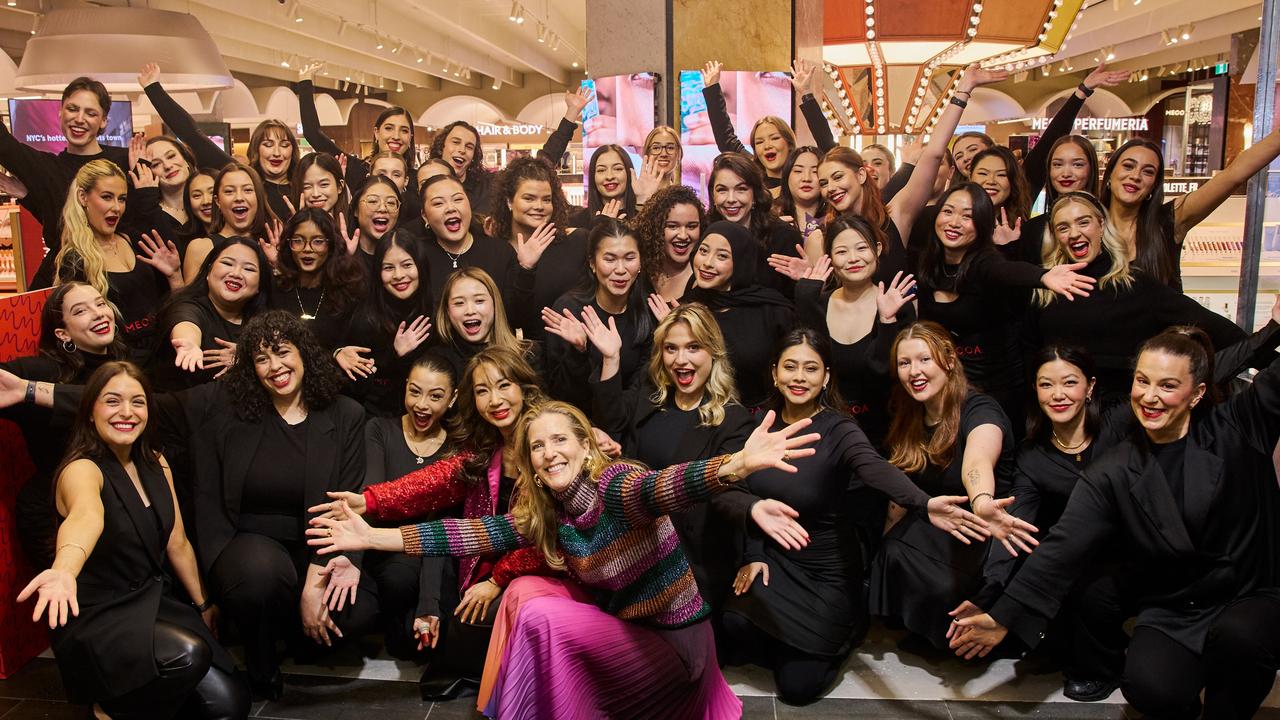Kim Kardashian’s Interview cover signals she’s entered her ‘white woman era’
Kim Kardashian raised eyebrows with her Interview magazine cover this week – but critics say it’s a sign she’s entered a new “era”.
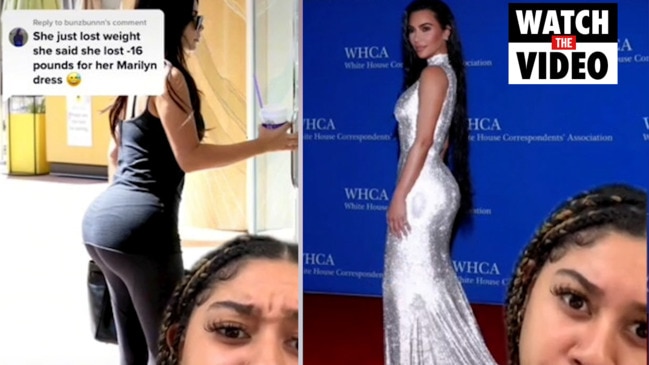
Beauty
Don't miss out on the headlines from Beauty. Followed categories will be added to My News.
Kim Kardashian once presented herself as a beauty alternative to the skinny blonde models of the ’90s.
But if her much-mocked appearance on the front of Interview magazine’s ‘American Dream Issue’ this week is anything to go by, the days of that are well and truly behind her.
The cover – and subsequent shoot – features Kardashian with Farrah Fawcett-esque blonde hair (an addition to her look since May, when she cosplayed Marilyn Monroe at the Met Gala), dressed in denim and standing in front of the US flag.
“It’s an all-American image if ever there were one,” Olivia Truffaut-Wong noted in a piece for The Cut, “and a distinctly different aesthetic from the look that made her famous – the one heavily inspired by Black culture, which led to her being accused of cultural appropriation time and time again.”
Over the past six months, amid speculation she’s reversed the alleged procedure responsible for her famed hourglass figure, critics on Twitter have noted a shift into what entrepreneur Ashlee Ray on Wednesday called “Kim K’s white woman era”.
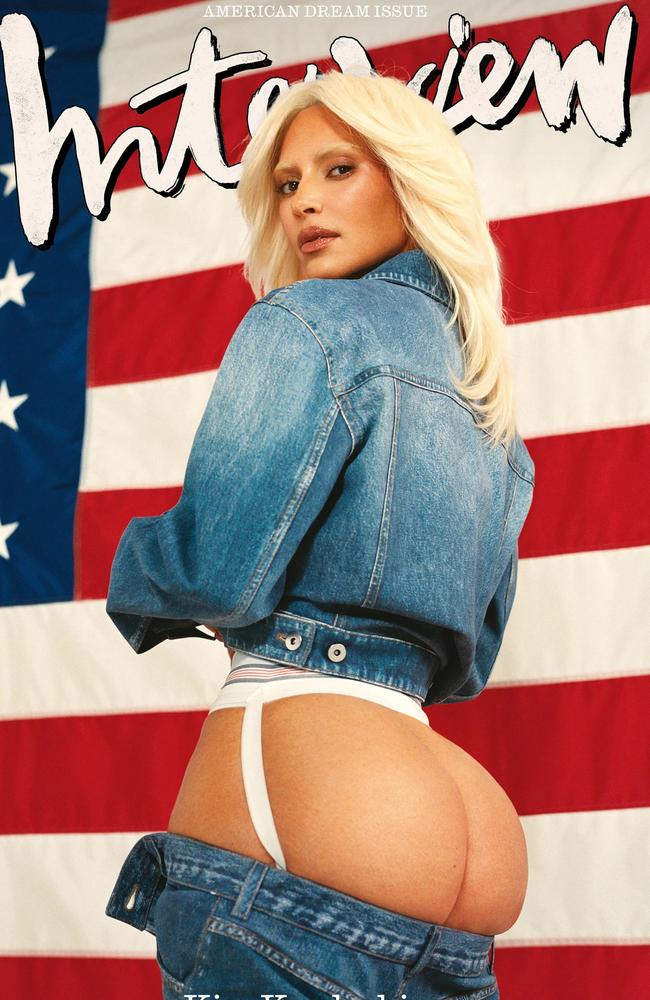
“Kim K really said ‘look guys I’m white again!!’” another Twitter user wrote of the Interview cover.
While a third tweeted: “I have so many thoughts about how the return to her status of ‘white woman’ after years of doing blatant black/brown face is coupled with so much American flag imagery. Like saying the categories of ‘American’ and ‘white’ are one and the same.”
Kardashian, who is of American-Armenian descent, has long been criticised for engaging in, as The Cut editor-in-chief Lindsay Peoples once put it, “a kind of mimicry of Black people, without actually ever having to deal with any of the downsides of being Black in America”.
Lol Kim K’s white woman era makes me understand why she ripped off black female creatives & black culture for so long because wow this is horrible. https://t.co/nUQyfZ42lY
— Ashlee Ray (@Ashlee_Ray) September 6, 2022
i have so many thoughts about how the return to her status of "white woman" after years of doing blatant black/brown face is coupled with so much american flag imagery. like saying the categories of "american" and "white" are one and the same
— taco bell hooks (@ohpegah) September 6, 2022
In the decade-plus since she and her bevy of famous sisters first graced our TV screens, Kardashian has sported everything from Fulani braids (a style which has roots in West Africa, and which she instead attributed to another white woman, Bo Derek) to skin-darkening makeup.
And with her much-talked-about figure, she tapped into an audience that sees her as no ordinary white woman, but instead as an “exotic” and interesting one.
“It’s no secret that [the Kardashian-Jenners] have adopted many styles that Black women or Black culture have created, and made them more palatable,” Wanna Thompson, who coined the term “blackfishing” in a viral 2018 Twitter thread, told Time.
Thompson pointed to the time Kardashian wore cornrows and beauty writers dubbed them “boxer braids”, rebranding the longtime protective style worn by Black women as a trend inspired by boxers.
“Now people think they’re copying the Kardashian-Jenners when they dress or do their hair or tan their skin a certain way,” she explained.
In a December interview, the 41-year-old told i-D that she “obviously … would never do anything to appropriate any culture”, adding that she has “learned and grown over the years”.
That, of course, didn’t stop her from fronting the March issue of Vogue with a noticeably darker complexion, closely mirroring photographs of the likes of Naomi Campbell, Beyonce and Alicia Keys, and once again prompting accusations that she had misappropriated Blackness through the altering of her own image.
Now, one only needs to look at the last time the reality star bared her arse on the cover of a magazine – her “internet-breaking” 2014 Paper shoot, when she mimicked not Farrah Fawcett, but a 1976 portrait of a nude Black model by French photographer Jean-Paul Goude, whose work has often been used in service of the objectification and eroticisation of Black women – to see how much things have changed.
A July article from Dazed pondered whether Kardashian’s supposed Brazilian Butt Lift reversal was a sign that “white people are ‘retiring’ from Blackness”, “after years of profiting from and appropriating Black women’s beauty, bodies and culture”.
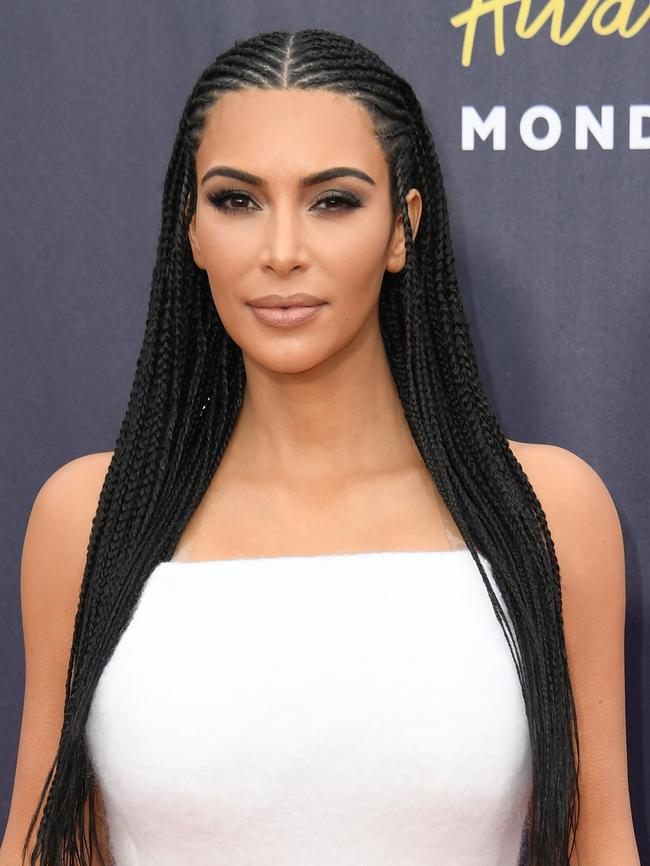
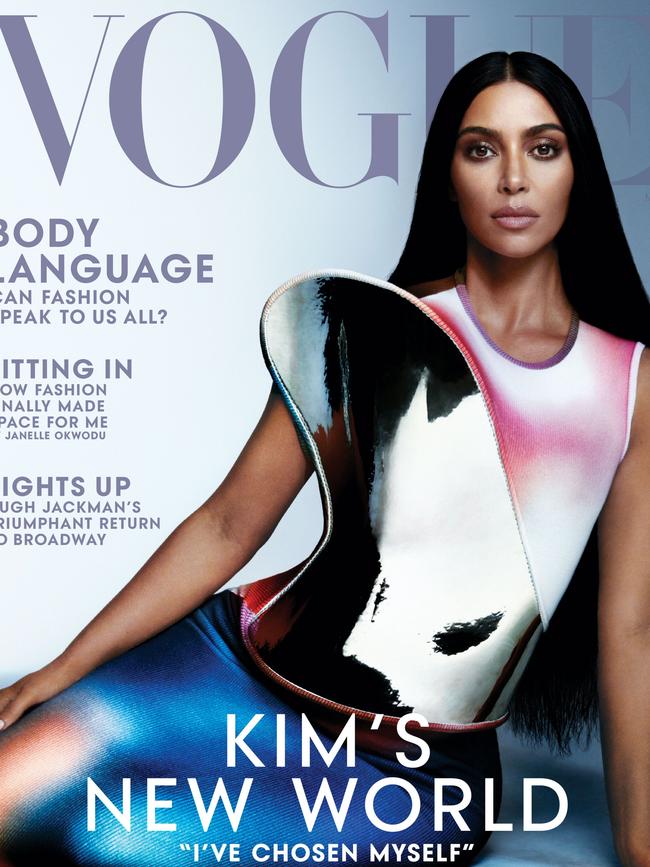
It’s a sentiment that was echoed by Ellen Atlanta in a piece for The Face, who suggested that “with her divorce from Kanye West, her increasing involvement in US politics and her legal training, Kim Kardashian is leaning away from a hypersexualised aesthetic and towards a more conservative, middle class beauty image”.
“This is significant because so much of the Kardashian’s beauty paradigm was colonised – it was an aesthetic stolen from minorities,” Atlanta added.
“The commodification of a body type that many Black women naturally possesses – as well as the distortion of what that looks like – reinforces the phenomenon of appropriation, especially as these features are most highly celebrated on white or light skinned women.
“The dropping of the overt BBL in favour of a ‘Country Club’ alternative, therefore, has coded racist messaging – are the bodies we typically attribute to Black and Latinx women not ‘conservative’ enough to be appropriate for middle class spaces?
“With women’s bodies (and particularly minority women’s bodies) being increasingly controlled, commodified and desexualised across America, it’s no coincidence that the move towards a more conservative beauty aesthetic runs in parallel with an increasingly polarised political landscape, the overturning of Roe v Wade and heightened racial tension.
“Despite its apparent evolution, the beauty standard is still upheld at the expense of minorities, and in the interest of classism, sexism, racism and capitalism.”
Originally published as Kim Kardashian’s Interview cover signals she’s entered her ‘white woman era’





